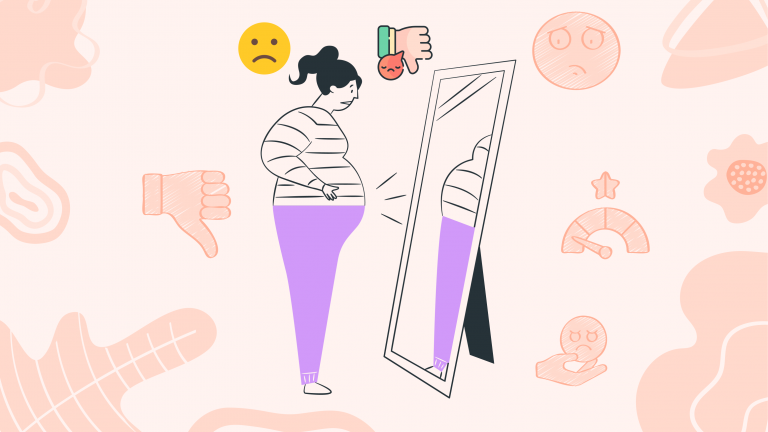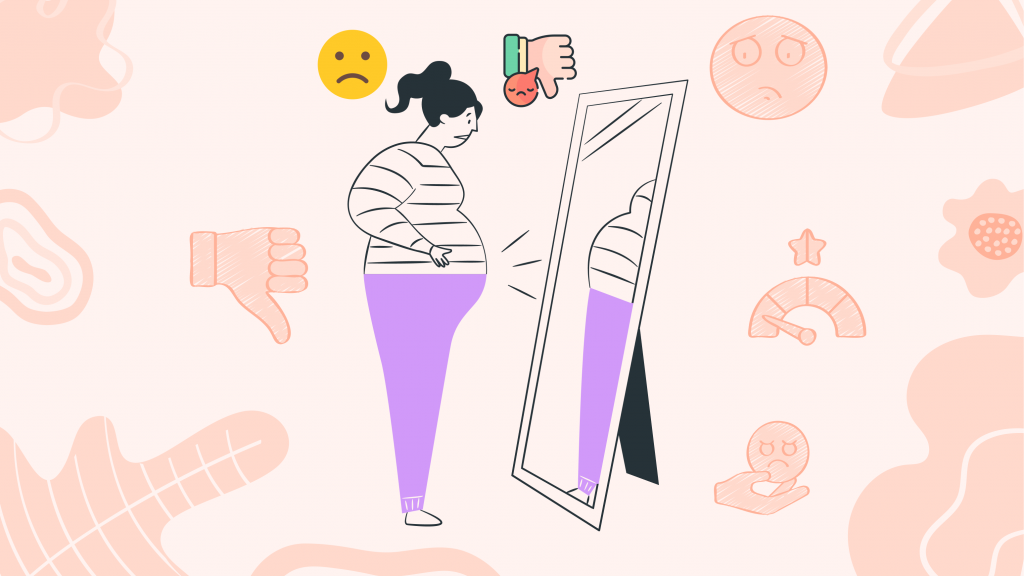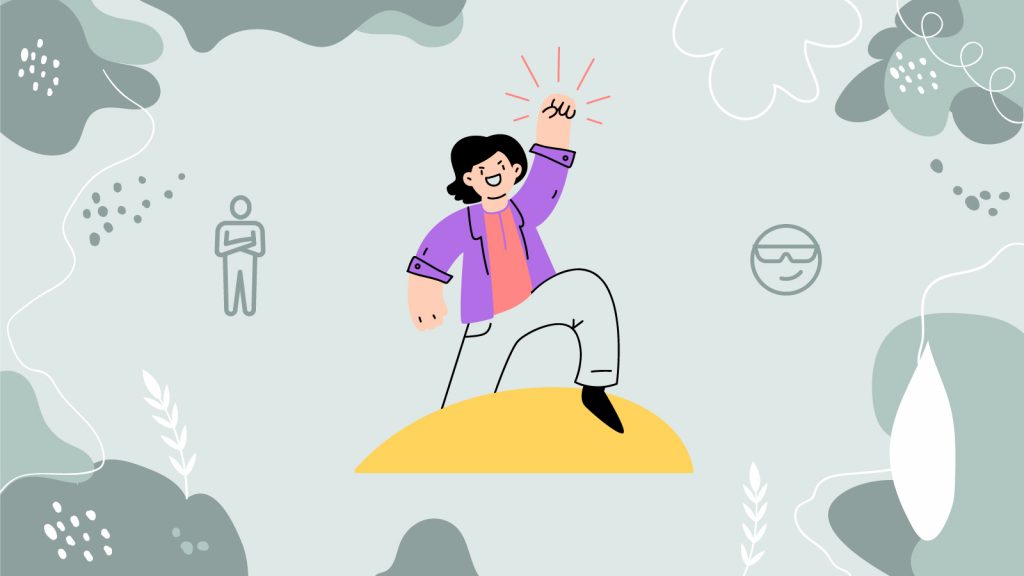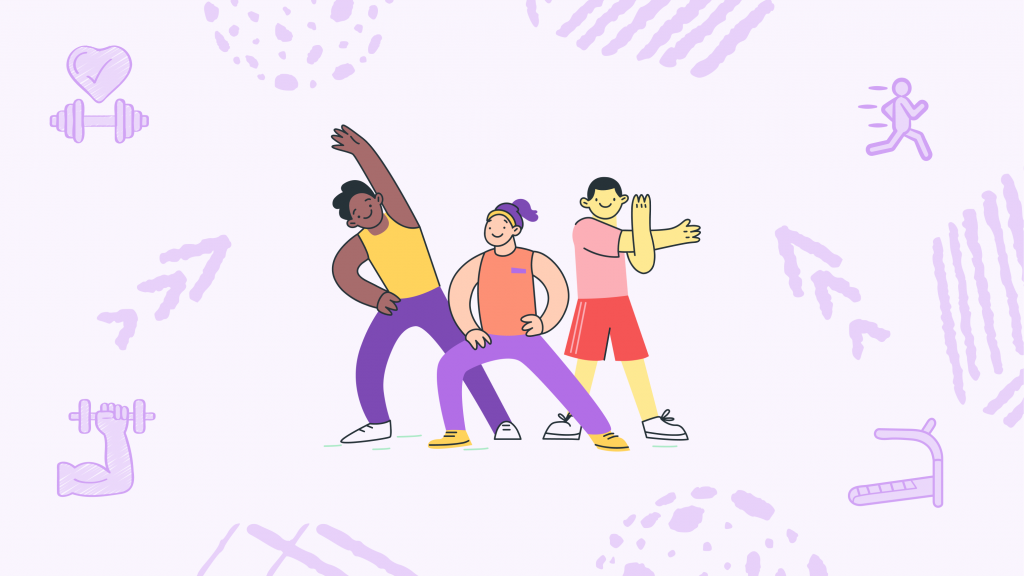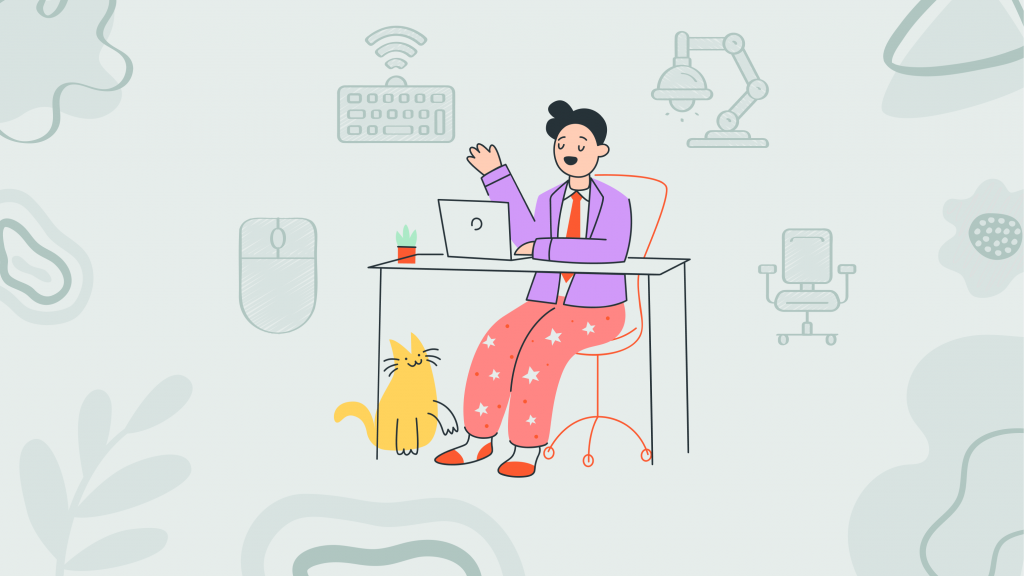Body Image Dissatisfaction
Ah, the mirror – not just a handy tool for fixing your hair or straightening your tie, right? It’s more like a portal where many of us fall into the trap of picking apart our looks, comparing every detail.
This whole body image dissatisfaction gig, where you just can’t seem to get cozy with what you see in the mirror, is a real doozy that tons of folks grapple with, no matter who they are or where they come from.
It’s like this shadow that trails you throughout the day, turning even the simplest things – like choosing an outfit or just flicking through your phone – into a minefield of self-doubt and gloom. What should be chill moments, like shopping for some cool clothes or liking pics on social media, can get all tangled up with worry and negative vibes about how we look.
So yeah, this whole reflection dilemma is more than skin deep. It’s about how we see ourselves and how that view can throw a gray cloud over our day-to-day joys and interactions, making us feel like we’re just not measuring up in the world of picture-perfect images.
The Science of Mind-Body Disconnect
At the heart of body image dissatisfaction lies a complex interplay between societal influences, personal beliefs, and biological factors. Neurologically, the brain processes and internalizes societal standards of beauty, often reflected in media portrayals, leading to a mental blueprint of what is ‘ideal’. When one’s reflection or self-perception doesn’t align with this ideal, it can trigger negative emotional responses.
Neurochemically, this dissatisfaction can affect mood-regulating neurotransmitters like serotonin and dopamine, contributing to feelings of sadness or inadequacy. The constant comparison and self-criticism can reinforce negative neural pathways, making it challenging to break free from the cycle of negative self-image.
Subscribe to newsletter
Get your Gut Health Starter Guide right now.
Elevate your Tuesdays with practical, science-backed wisdom propelling you forward on your gut health journey.

Strategies for Self-Acceptance
Breaking free from the clutches of body image dissatisfaction requires a multifaceted approach:
- Critical Media Consumption: Start by evaluating the media you consume and its impact on your self-image. Seek out diverse representations of body types and limit exposure to content that fuels negative comparison.
- Mindfulness and Self-Compassion: Practice mindfulness to bring awareness to negative self-talk and shift towards a more compassionate view of yourself. Mindfulness exercises can help you stay present and appreciate your body for its functionality rather than just its form.
- Body Neutrality: Focus on body neutrality, which emphasizes appreciating your body for what it can do rather than how it looks. This shift can help reduce the emotional weight attached to physical appearance.
- Professional Support: If body dissatisfaction is significantly impacting your life, consider seeking support from mental health professionals who specialize in body image issues.
The Journey to Self-Acceptance
Lucas, a college student majoring in environmental science, always felt the pressure of societal standards. Standing in front of his mirror, he would often scrutinize every inch of his reflection, comparing himself to the athletic, chiseled figures he saw online and around campus. This constant comparison made him retreat into himself, avoiding social gatherings and activities he once enjoyed.
“During my first year at college, I hit rock bottom with my self-esteem. It felt like I was living in a world where everyone else seemed to have the perfect look, and I was the odd one out,” Lucas shares. His journey took a positive turn when he decided to seek help and started attending therapy sessions.
“In therapy, I slowly peeled back the layers of my insecurities. It was like unraveling a tightly wound ball of yarn. Each session helped me untangle the thoughts that bound my self-worth to my appearance,” Lucas reflects. He started incorporating mindfulness into his daily routine, focusing on the present moment and his body’s abilities rather than its flaws.
“Mindfulness helped me center my thoughts. I began to appreciate my body for the miles it could run, the mountains it could climb, and the minds it could enlighten with my passion for environmental advocacy,” he says with newfound clarity.
Lucas’s transformation was gradual but profound. “I won’t say I never have bad days, but now they’re just days, not verdicts on my worth. I’ve discovered a strength in me that’s not just physical. It’s the courage to face my insecurities and the wisdom to know they don’t define me.”













